Coconut Flour: Nutritional Facts, Health Benefits, & More
This nutritious flour can do wonders for your health if you add it to your daily diet.
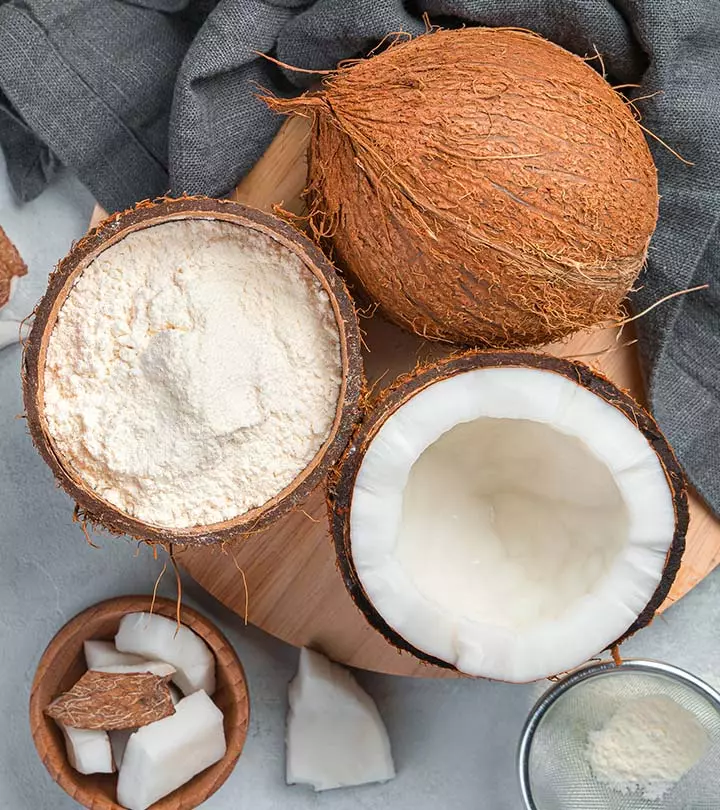
Image: iStock
The benefits of coconut flour are attributed to its high dietary fiber and protein content. It is a perfect fit for a keto diet and serves as an excellent substitute for cornmeal and regular flour. The benefits range from managing blood sugar levels to reducing the risk of cancer and heart disease. The best part is coconut flour can be digested easily. It is a tasty addition to various delicacies like desserts, cakes, pies, and many different snacks.
Read this article to know more about coconut flour, its benefits, nutrition, and possible health risks. Scroll down.
In This Article
What Is Coconut Flour?
Coconut flour is ground, defatted, and dehydrated coconut. It is a byproduct of the coconut milk manufacturing process. Here are a few facts (1):
- Coconut flour is darker than all-purpose flour. It is much denser than oat, maize, and all-purpose flours.
- It has a mild nutty odor and nearly bland flavor due to its reduced fat content.
- You can store it for six months at room temperature.
Coconut flour is a great alternative to wheat flour and is best for celiac disease, a digestive and autoimmune disorder that affects the small intestine. Let’s learn why.
Is Coconut Flour Gluten-Free?
Yes, it is! And that is why it is best for people with celiac disease, an inheritable chronic illness marked by gluten sensitivity. It affects the small intestine, reducing food absorption and causing abdominal discomfort and malnutrition.
At the moment, the only therapy for gluten intolerance is to restrict gluten-containing foods, such as wheat, barley, and rye. However, a gluten-free diet is often low in dietary fiber and carbs (2). This is where coconut flour can help.
Anthony Puopolo, Chief Medical Officer at RexMD, observes, “Coconut flour is becoming increasingly popular, especially amongst those with celiac disease or gluten intolerance because of how easily it can be used as a substitute for white flour.”
It is a healthy and safe choice for people with celiac disease and gluten intolerance (3). Moreover, coconut flour has a rich nutrient profile.
Nutritional Information of Coconut Flour
Coconut flour’s nutrient composition mainly depends on the coconut oil extraction process. Dry-processed coconut flour is high in protein, and wet-processed flour is high in fiber (3). Other than that, there is not much difference in the nutrient profile of coconut flour. Here is a quick overview:
| Nutrient | Percentage (Dry processing method) |
|---|---|
| Protein | 14.3% |
| Fat | 54% |
| Carbohydrate | 23.4% |
| Dietary Fiber | 20.5% |
| Ash | 1.5% |
| Moisture | 6.7% |
According to the USDA, a tablespoon (15 g) of coconut flour contains (4):
| Energy | 50 kcal |
| Protein | 2g |
| Fat | 3g |
| Carbohydrate | 8g |
| Dietary fiber | 6g |
| Iron | 1.08mg |
| Potassium | 200mg |
| Sodium | 15mg |
Coconut flour has high fiber content, making it easy to digest. It also has several other health benefits.
Health Benefits of Coconut Flour
1. May Have Antidiabetic Properties
Coconut flour has proteins that contain l-arginine, an amino acid. This compound controls blood glucose levels and improves insulin resistance (3),(5).
Moreover, coconut flour contains fiber. The American Diabetes Association recommends consuming fiber-rich foods as they usually have a low glycemic index. Thus, the dietary fiber in coconut flour may be beneficial for people with diabetes (6).
2. May Promote Heart Health
Several studies showed that consuming dietary fiber consumption could lower serum cholesterol and blood pressure (7). While digesting the coconut flour in the gut, the microbes form short-chain fatty acids. These fatty acids prevent cholesterol formation in the liver (8).
3. May Have Anticancer Properties
Coconut flour contains phenols and flavonoids. These antioxidants are free radical scavengers and considered to have a chemo-protective effect (3). Moreover, the digestion process of coconut flour in the gut produces butyrate, which has anti-inflammatory and anticarcinogenic properties (9)(10).
4. May Promote Digestion
Coconut flour is rich in dietary fiber, which is easy to digest as it passes through the small intestine faster, increases water retention in the colon, and makes the stool softer. That is why high-fiber foods or supplements like coconut flour are usually recommended to people with gastrointestinal disorders, such as IBS and constipation (11).
5. Promotes Gut Microflora
Coconut flour contains carbohydrates, which work as a powerful prebiotic when digested. This prebiotic substance supports the growth of good intestinal bacteria that helps maintain gut health and keep pathogens at bay (3), (12), (13).
6. May Help Control Weight
The fiber in coconut flour helps absorb water, which increases satiety. Studies showed that people who consumed coconut flour stayed away from ultra-processed foods like soft drinks and chocolates (14). This may help you stay full for longer, promote portion control, and help in weight management.
This flour is nutritionally dense and versatile, which makes it a great alternative to regular flour. Check out how you can add it to your diet.
How To Add Coconut Flour To Your Diet
You can use coconut flour to prepare baked goodies and desserts. It absorbs a lot of liquid, so you may need less flour or more liquid than the recipe says. As a rule of thumb, if a recipe calls for 1 cup of flour, use ¼ cup of coconut flour. Check out some popular recipes with coconut flour.
 Pro Tip
Pro Tip1. Pancakes
What You Need
- ¼ cup of coconut flour
- 4 eggs
- ½ cup of Greek yogurt
- 1 teaspoon of butter
- ¼ cup of water
- 2 tablespoons of coconut oil, (melted)
- 1 tablespoon of flaxseed meal
- 2 teaspoons of vanilla extract
- 2 teaspoons of baking powder
- 2 teaspoons of ground cinnamon
- ½ teaspoon of salt
How To Prepare
- Grease a cast-iron skillet with butter over medium-low heat.
- Mix all ingredients in a bowl.
- Pour one-third cup of the batter into the hot skillet.
- Cook for 4 to 5 minutes on each side over low heat.
- Top it with syrup, berries, or whipped cream before serving.
2. Gluten-Free Shortbread Cookies
What You Need
- ¼ cup of coconut flour
- ¼ cup of gluten-free flour
- 1 large egg
- ¼ cup of sugar
- ¼ cup of unsalted butter, softened
- ¼ teaspoon of salt
How To Prepare
- Preheat the oven to 400℉. Grease a baking sheet.
- Mix all the ingredients in a mixer for about 2 minutes until you get a uniform dough.
- Drop the cookie dough onto the baking sheet with a cookie scoop. Leave an inch space between them.
- Flatten the cookies to about ¼-inch thickness. Make a crosshatch design on them with a fork.
- Bake the cookies for 8 to 12 minutes, until the bottoms are lightly browned.
- Let them cool down before removing them from the baking sheet.
3. Chocolate-Chip Brownies
What You Need
- ½ cup of coconut flour, sifted
- ½ cup of cocoa powder
- 1 tablespoon of semisweet chocolate chips
- 1/3 cup of coconut oil, melted
- 6 eggs
- ½ teaspoon of vanilla extract
- 1 cup of sugar
- ½ teaspoon of salt
How To Prepare
- Preheat the oven to 350℉. Grease a baking sheet.
- Beat the eggs, coconut oil, cocoa powder, sugar, salt, and vanilla extract in a bowl.
- Add coconut flour to it and mix until there are no lumps.
- Pour batter into the baking dish and top with chocolate chips.
- Bake for 35 minutes or until fully cooked.
- Remove it from the oven. Let it cool.
 Pro Tip
Pro TipThese gluten-free recipes are perfect for everyone, even those on the keto diet! Read more to find out how keto-friendly this flour is.
Is Coconut Flour Keto Friendly?
NASM certified nutrition coach Elliot Reimers says, “Coconut flour is considered keto-friendly because of its high-fat content and minimal carbs. Coconut is also low in sugar and therefore will not mess with your keto progress.”
Coconut flour does not contain much fat as the oil is extracted from it. However, it still contains medium-chain saturated fatty acids, such as lauric and myristic acids (15). Defatted coconut flour is low on carbohydrates (23.40%) (16). Hence, it is a great addition to the keto diet.
Proponents of the keto diet often prefer almond flour over any other type of flour. And recently, coconut flour has been giving it tough competition. So, almond flour vs. coconut flour — which one has the edge? Let’s find out.
Coconut Flour Vs. Almond Flour – Which One Is The Best?
, MS, RDN, states, “Compared to almond flour, coconut flour is slightly higher in carbohydrates and lower in fat. However, almond flour contains more vitamins and minerals than coconut flour.”
If you are looking for a keto-friendly and healthy alternative, almond flour has the edge over coconut flour.
 Pro Tip
Pro TipNonetheless, coconut flour has an advantage over almond flour with respect to accessibility and expense. There is, however, a chance of side effects.
Possible Side Effects Of Coconut Flour
Coconut allergy is uncommon. However, there have been a few cases. Coconut-derived products can cause allergic contact dermatitis. You may experience mild symptoms like a skin rash or blistering (17), (18). Consult a doctor before consuming coconut flour.
The high protein and fiber content can be attributed to the benefits of coconut flour. It helps manage diabetes, promotes heart health, and has anti-cancer properties. Also, coconut flour promotes digestion, helps in weight management, and promotes gut microflora. You can use coconut flour for baking. Although the consumption of coconut flour is generally safe, it is not recommended for people with a coconut allergy. Skin rash, irritation, and allergic contact dermatitis are the possible side effects. Hence, caution is advised. If you are not allergic to coconut, try including coconut flour in the recipes mentioned above.
Frequently Asked Questions
Is coconut flour a superfood?
Yes. Coconut flour is a superfood. It is nutritionally rich and loaded with dietary fiber, carbs, and proteins. In addition, it is easy to use, enhances the taste of your food, and also has many health benefits ranging from controlling blood glucose levels to promoting gut health.
Does coconut flour have omega-3?
Yes. This gluten-free flour also has a good omega 3:6 ratio. In addition, it is low in carb values.
Can I use coconut flour instead of all-purpose flour?
Yes. You can use coconut flour instead of all-purpose flour. But swap about ¼ to 1/3 cup of coconut flour with 1 cup of all-purpose flour because coconut flour becomes dense and soaks up a lot of moisture.
Is coconut flour good for leaky gut?
Yes. Anecdotal evidence suggests that this gluten-free flour is a great alternative for people with celiac disease and leaky gut syndrome. However, limited data is available to prove these claims.
Is coconut flour an antifungal?
Yes. Coconut flour exhibits antifungal and antibacterial properties.
Is coconut flour acid or alkaline?
Coconut flour is considered acidic, like many other foods.
Key Takeaways
- Coconut flour is dehydrated coconut with rich dietary fiber, making it easy to digest.
- This gluten-free flour may control blood glucose levels and help prevent cancer.
- You can add it to your regular diet in several ways to reap its maximum benefits.
In this video, discover the fantastic health benefits of coconut flour, such as better diabetes control or improved digestion, as a wholesome alternative to traditional wheat flour. Hit the play button to know more.
References
Articles on StyleCraze are backed by verified information from peer-reviewed and academic research papers, reputed organizations, research institutions, and medical associations to ensure accuracy and relevance. Read our editorial policy to learn more.
- Coconut flour – a low carbohydrate gluten free flour: a review article.
http://interscience.org.uk/v4-i1/1%20ijahm.pdf - Nutritional Deficiencies in Children with Celiac Disease Resulting from a Gluten-Free Diet: A Systematic Review
https://www.mdpi.com/2072-6643/11/7/1588/htm - Coconut meal: Nutraceutical importance and food industry application
https://www.researchgate.net/publication/336854470_Coconut_meal_Nutraceutical_importance_and_food_industry_application - FoodData Central
https://fdc.nal.usda.gov/fdc-app.html#/food-details/1479884/nutrients - L-Arginine Modulates Glucose and Lipid Metabolism in Obesity and Diabetes
https://www.ingentaconnect.com/content/ben/cpps/2017/00000018/00000006/art00012 - Dietary Fiber Intake and Type 2 Diabetes Mellitus: An Umbrella Review of Meta-analyses
https://www.sciencedirect.com/science/article/abs/pii/S1556370717300585 - Dietary Fiber Is Beneficial for the Prevention of Cardiovascular Disease: An Umbrella Review of Meta-analyses
https://www.sciencedirect.com/science/article/abs/pii/S1556370717300160 - Role of Gut Microbiota-Generated Short-Chain Fatty Acids in Metabolic and Cardiovascular Health
https://link.springer.com/article/10.1007/s13668-018-0248-8 - Dietary fiber from coconut flour: A functional food
https://www.researchgate.net/publication/222033828_Dietary_fiber_from_coconut_flour_A_functional_food - Butyrate modulates oxidative stress in the colonic mucosa of healthy humans
https://pubmed.ncbi.nlm.nih.gov/19108937 - Dietary fiber and digestive health in children
https://academic.oup.com/nutritionreviews/article/75/4/241/3747768?login=true - Carbohydrate content and composition of product from subcritical water treatment of coconut meal
https://www.sciencedirect.com/science/article/abs/pii/S1226086X1100195X - Impacts of Gut Bacteria on Human Health and Diseases
https://www.ncbi.nlm.nih.gov/pmc/articles/PMC4425030/ - EFFECT OF HYPOENERGETIC DIET COMBINED WITH CONSUMPTION OF COCONUT FLOUR IN OVERWEIGHT WOMEN
https://pubmed.ncbi.nlm.nih.gov/26545655/ - Effect of Coconut Flour on Biscuit Quality
https://www.tandfonline.com/doi/abs/10.1080/15428052.2021.1978362 - Defatted coconut flour improved the bioactive components dietary fibre antioxidant and sensory properties of nixtamalized maize flour
https://www.sciencedirect.com/science/article/pii/S2666154320300235 - Coconut Allergy Revisited
https://www.ncbi.nlm.nih.gov/pmc/articles/PMC5664015/ - Coconut Allergy
https://www.allergy.org.au/patients/food-allergy/coconut-allergy
Read full bio of Dr. Sandeep Jassal
Read full bio of Ravi Teja Tadimalla
Read full bio of Sindhu Koganti





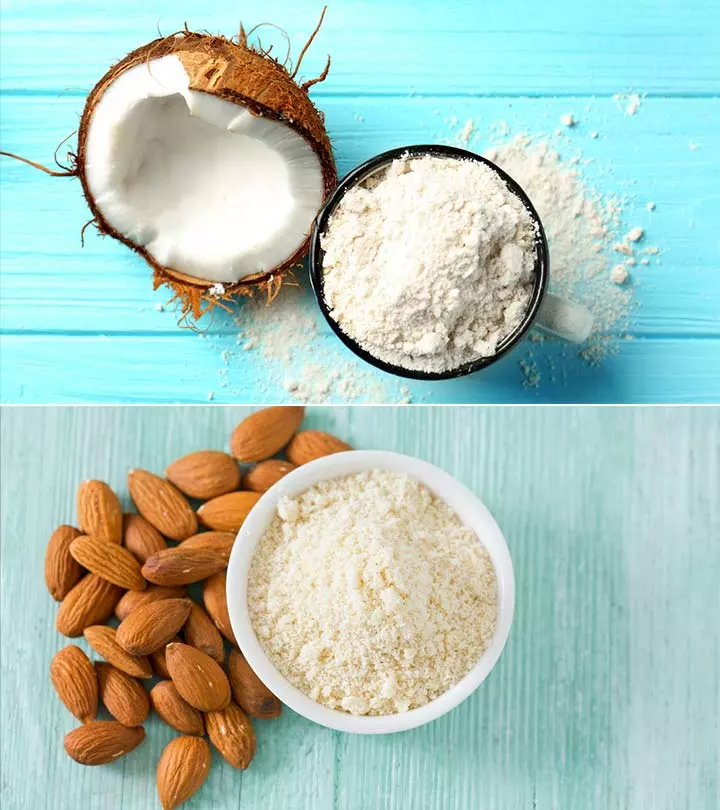
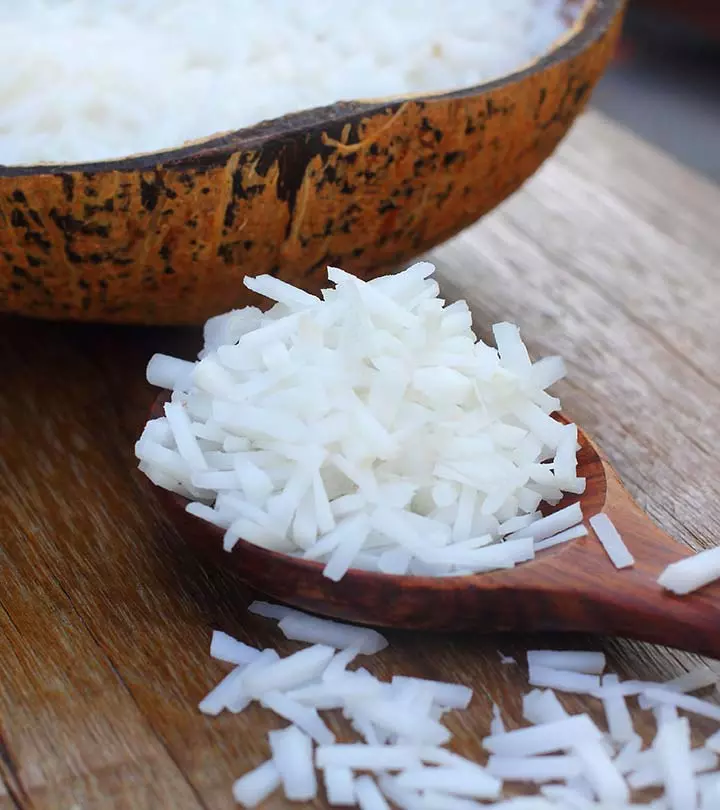
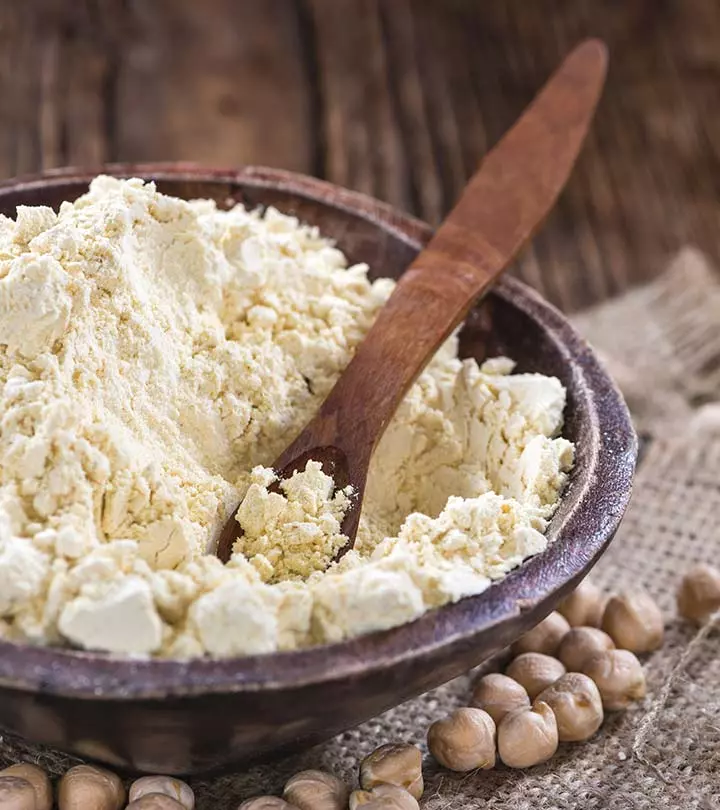


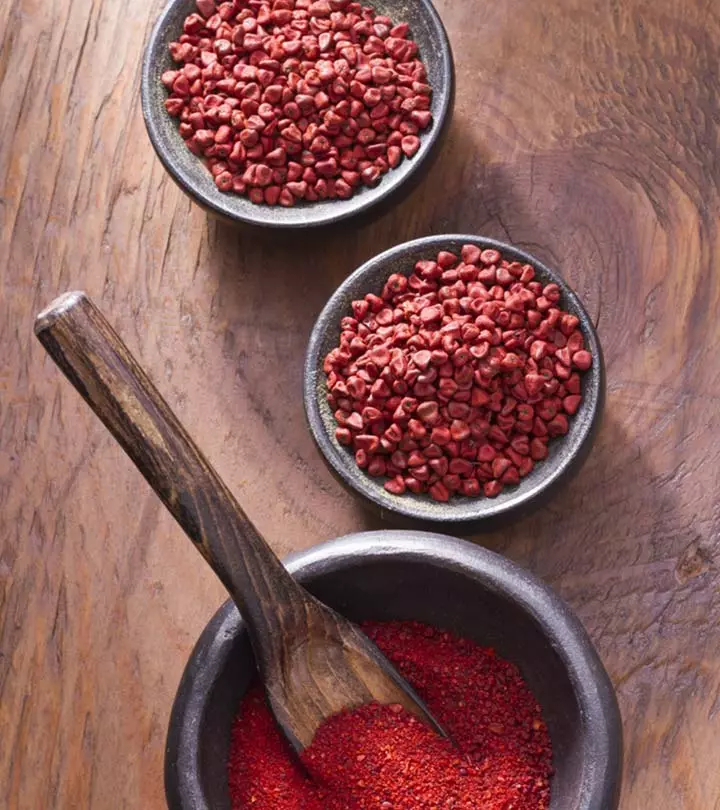
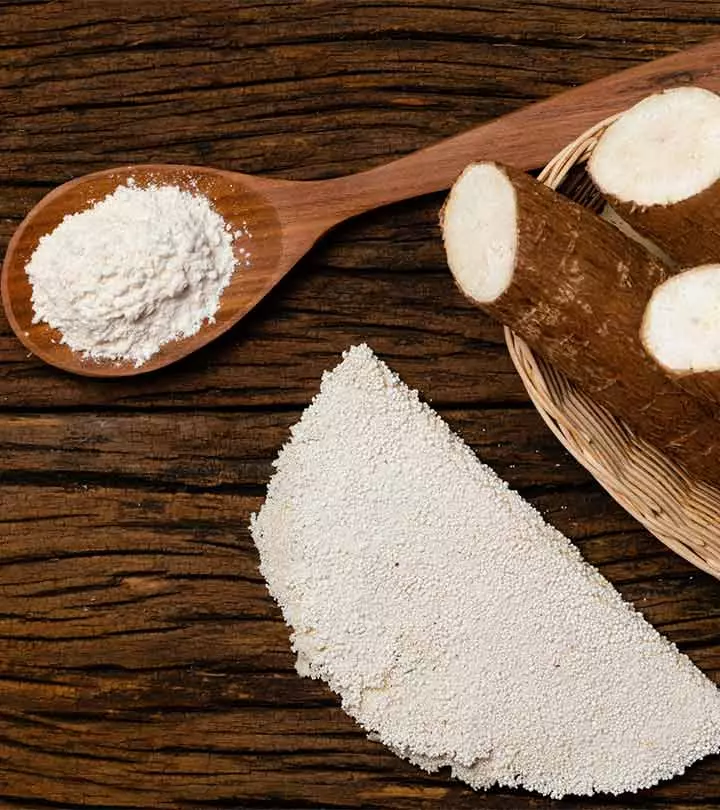
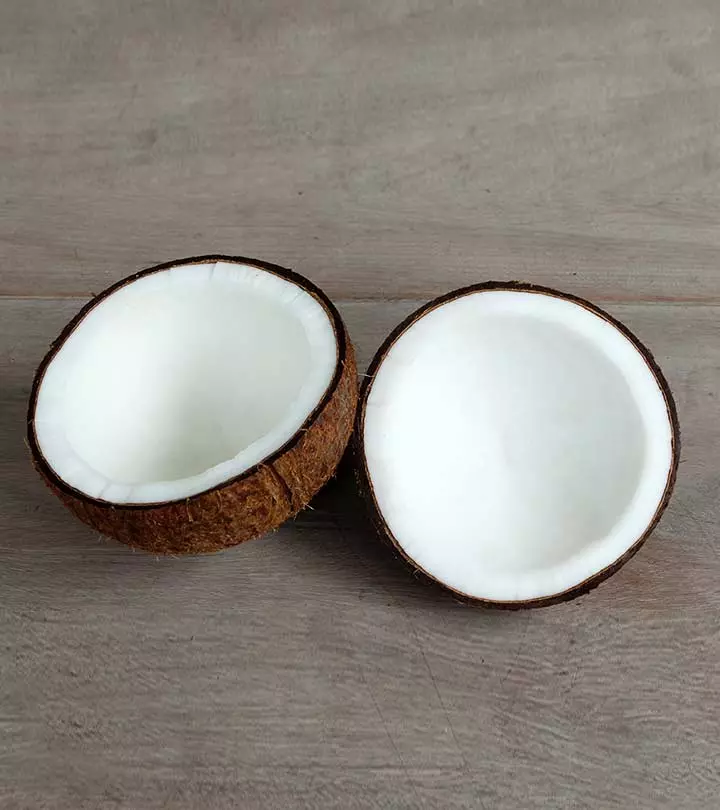
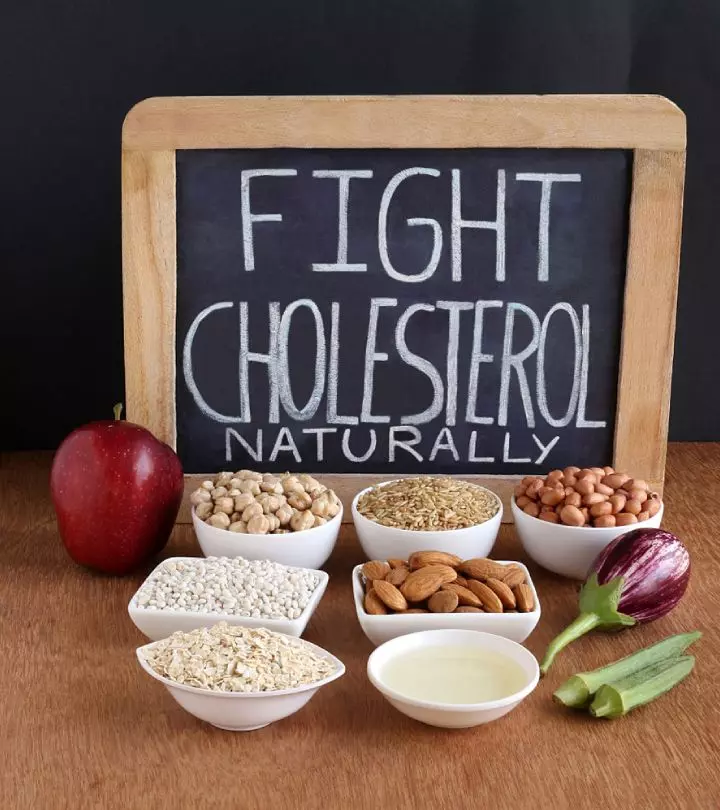
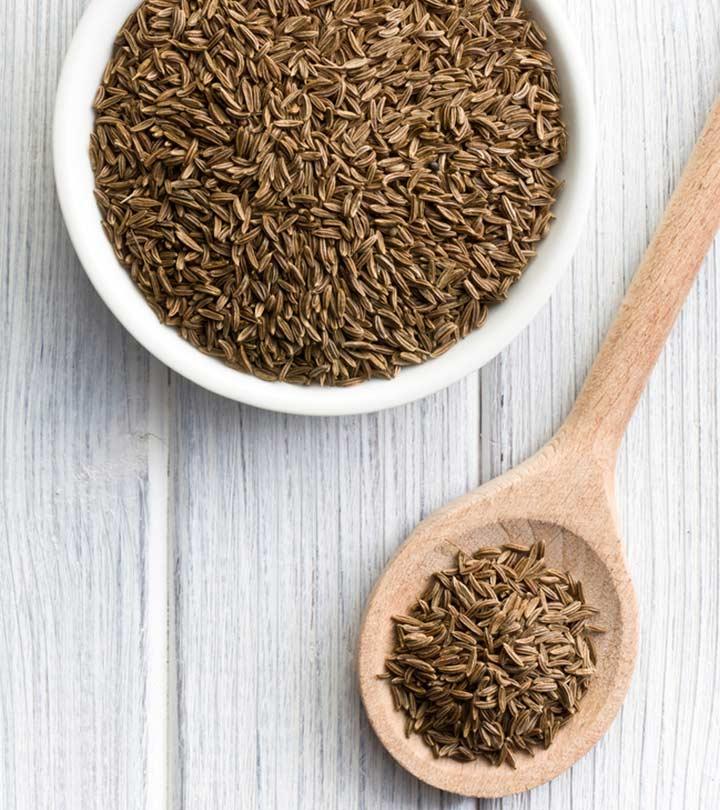




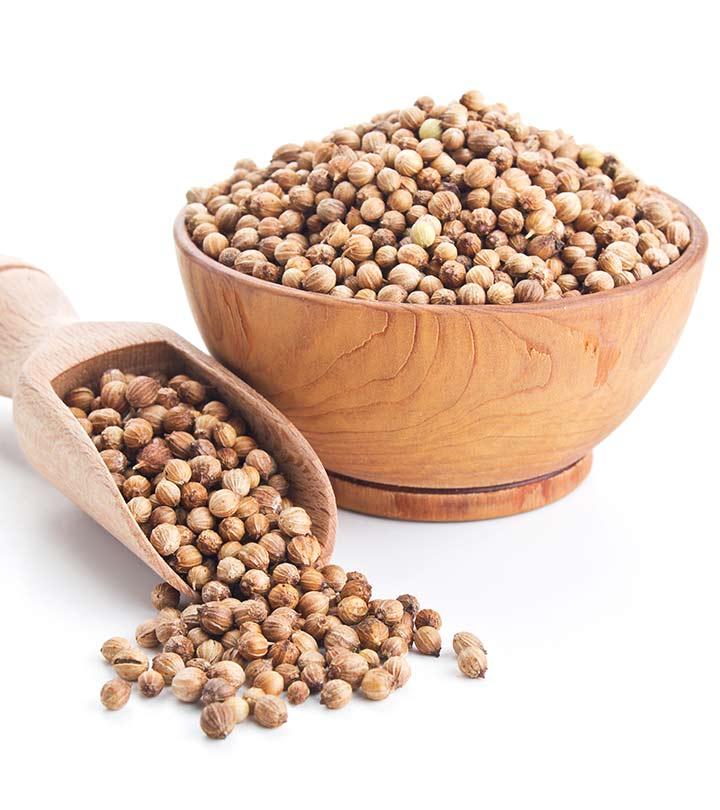
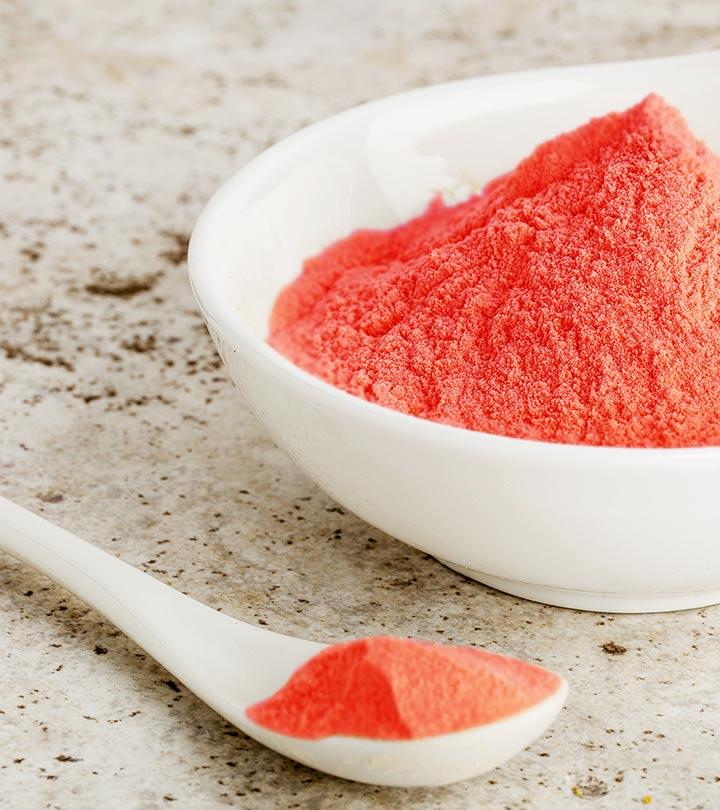

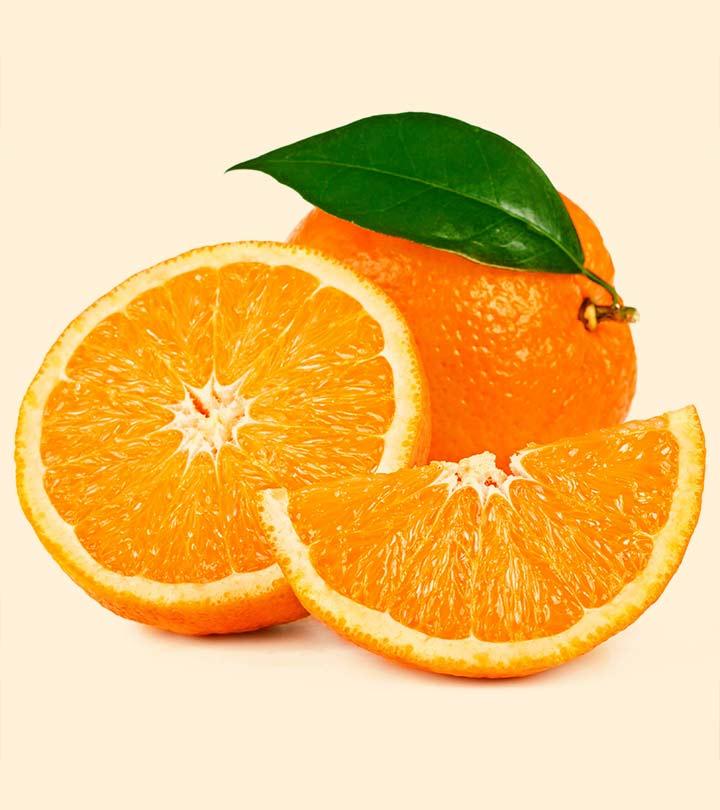



Community Experiences
Join the conversation and become a part of our empowering community! Share your stories, experiences, and insights to connect with other beauty, lifestyle, and health enthusiasts.